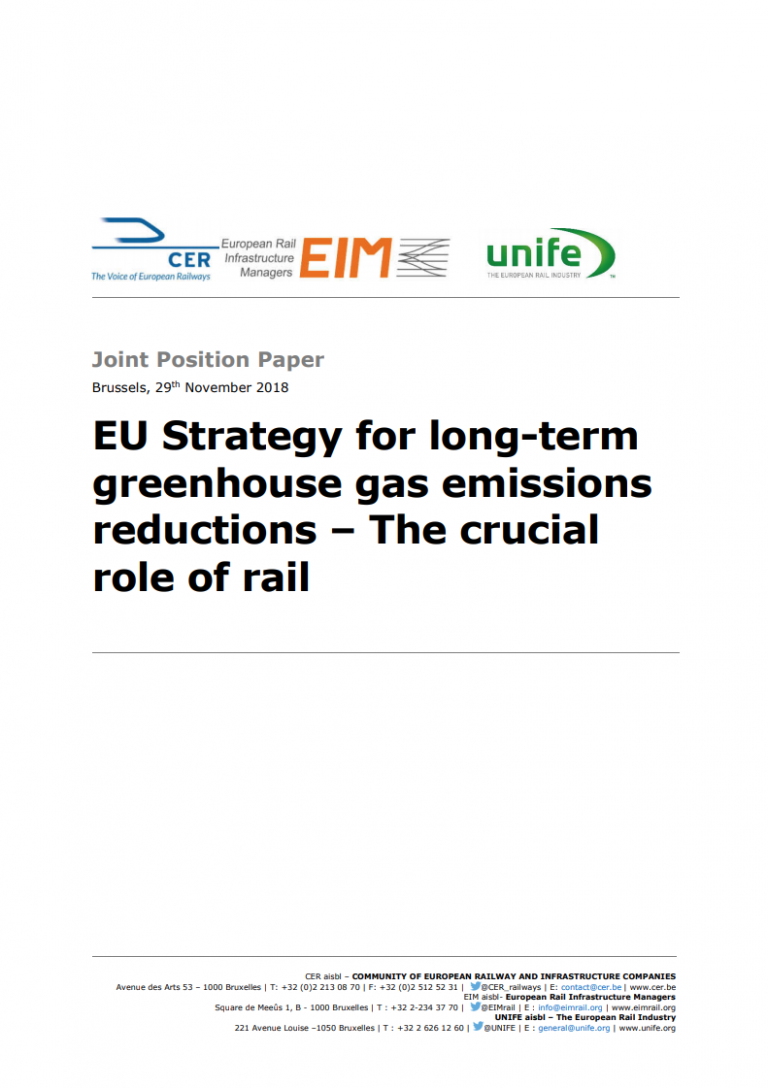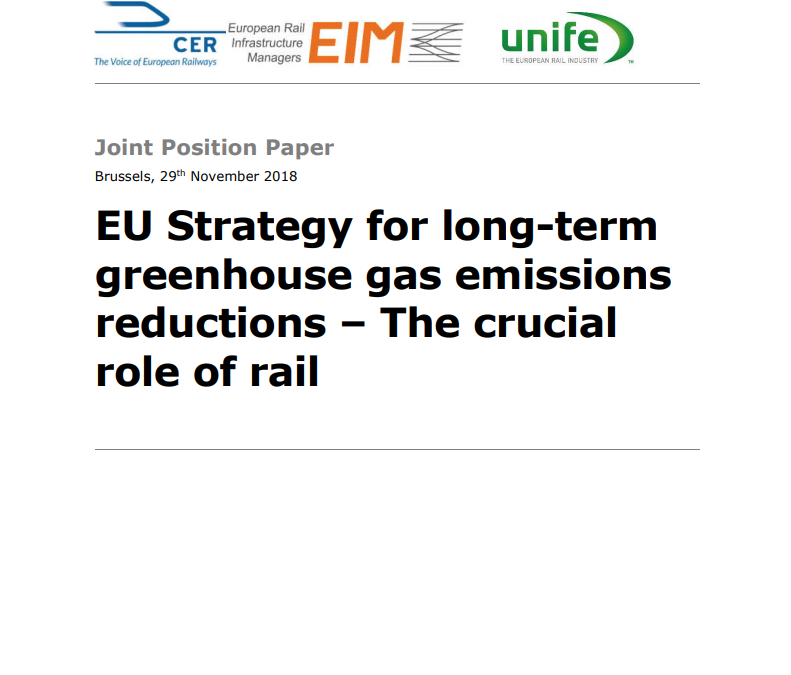Position Papers
The EU has been at the forefront of international efforts towards the Paris climate agreement and took legislative steps to implement its target to reduce greenhouse gas emissions by at least 40% by 2030. On 28th November 2018, the European Commission has published a Communication on the long-term strategy for GHG emissions reduction ahead of the 24th session of the Conference of the Parties, taking place in Katowice in December 2018. Transport emissions are the main obstacle in delivering the EU’s climate objectives. Decarbonisation of the transport sector remains both a challenge and an opportunity for the greenhouse gases reduction policy. Rail is the only mode reducing its emissions and thanks to energy-efficient zero carbon railways there can be more transport activity with lower and lower emissions in Europe.
Welcoming the initiative on a long-term EU Strategy for emissions reductions, the Community of European Railway and Infrastructure Companies (CER), the Association of the European rail infrastructure managers (EIM) and the Association of the European rail supply industry (UNIFE) suggests policymakers to seize the opportunity by acting now to accelerate decarbonisation of the transport sector. In particular, CER, EIM and UNIFE urge the Commission to foster win-win cooperation in climate change by rapidly reinforcing low emission mobility in Europe through:
- Realise sustainable modal shift targets to reach emission reductions needed in the transport sector, in full compliance with the ambitious goals set in the Paris agreement (COP21) and in the Nationally Determined Contributions (NDCs).
- Maintain a reporting mechanism for Member States to monitor, incentivise and facilitate their progress in reducing transport emissions. Annual reports should be published so as to incentivise Member States to achieve progress.
- Foster the implementation of the 2011- Transport White Paper, confirming in legislation at least 60% reduction target for transport emissions by 2050 compared to 1990 levels, with an additional binding target for 2030.
- Internalise external costs in all transport modes based on polluter pays principle
- As recently being agreed by the ministers under the Graz Declaration promote rail as backbone of sustainable mobility, both for urban, sub-urban and medium/long-distance transport, and its interconnectivity with other low-carbon modes.
- Ensure best use of EU funds for a successful budget for covering investment needs of sustainable transport projects beyond 2020; in addition to new Connecting Europe Facility, allocate sustainable finance such as green bonds accessible only for low emissions sectors.
- Further electrify and upgrade the rail network (regional as well as main lines), as electrified railway transport is by far the most efficient form of e-mobility, where carbon savings and the economic case of such projects are positive.
- Support the development and market introduction of zero-emission, energy-efficient technologies– where this is based on the assessment of the total life-cycle process.
- Taking stock of the fundamental work carried out within Shift2Rail Joint Undertaking, continue and intensify support to rail research and innovation – notably extending the Shift2Rail programme within Horizon Europe 2021-2027 with a significantly larger adequate budget



